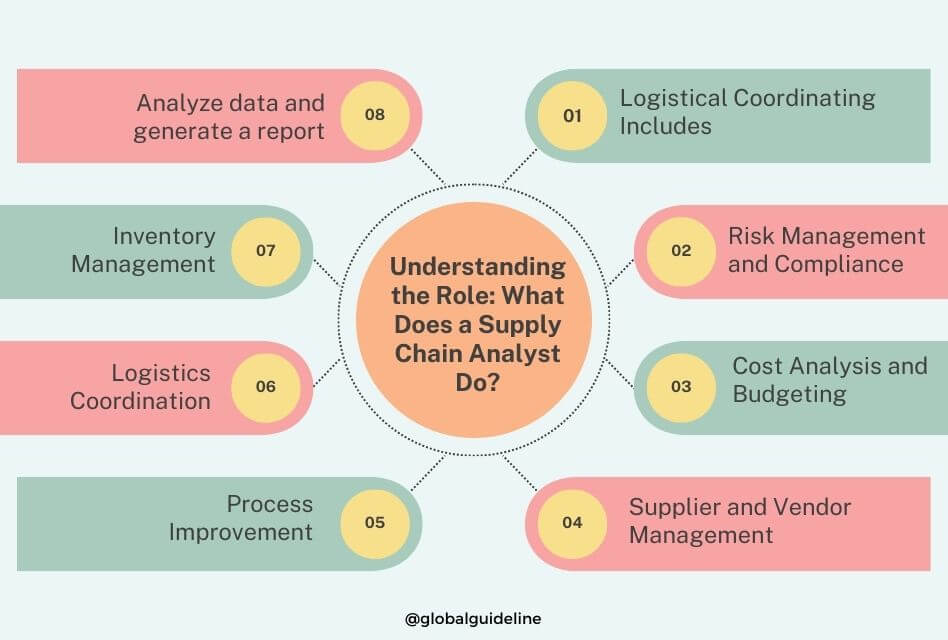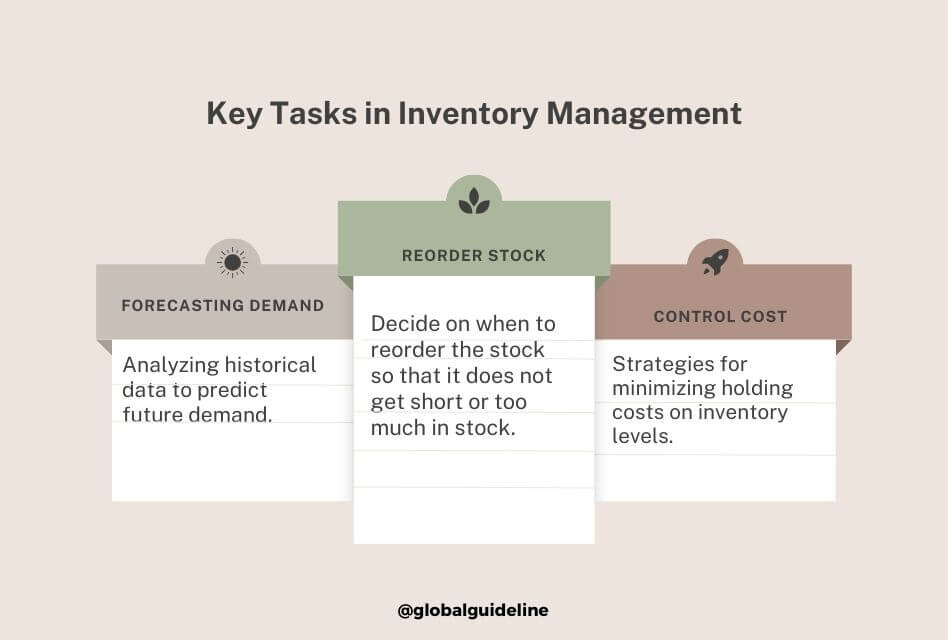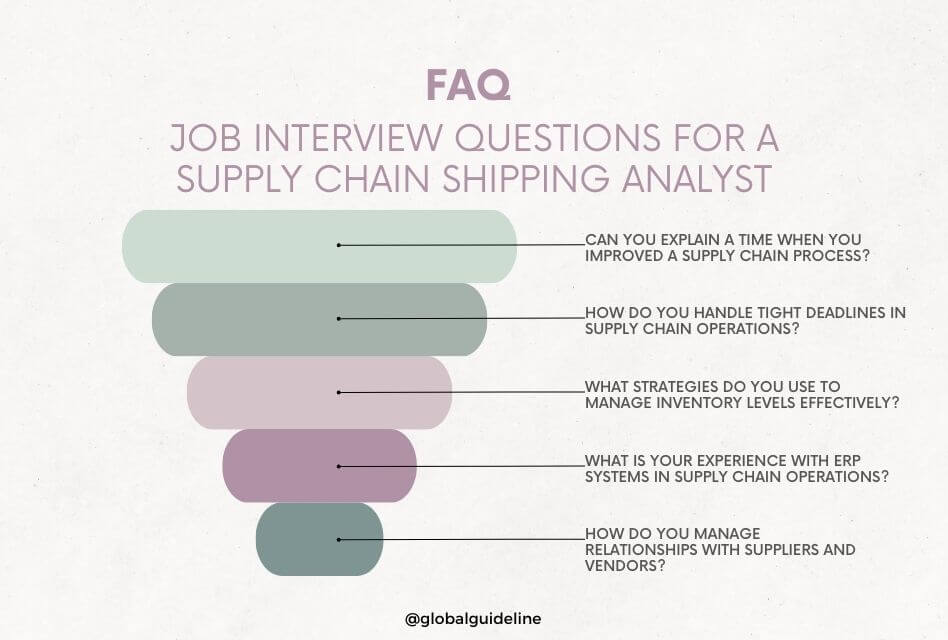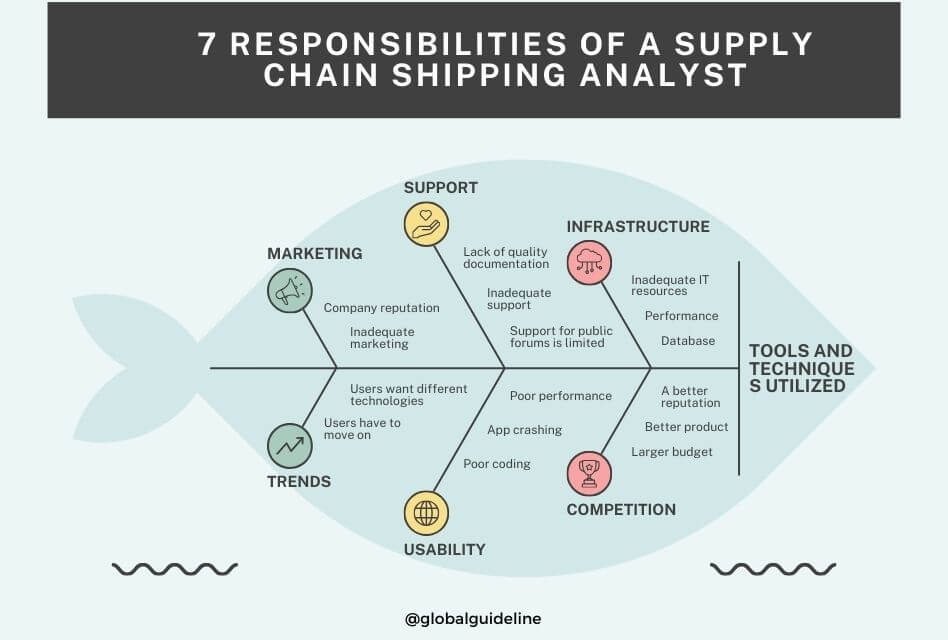Analyzing shipping requires huge commercial involvement, and supply chain shipping analysts play a substantial role in the smooth function of supply chain operations. This career path is vital in order to ensure that a product reaches the right place at the right time. At a time when efficiency and cost reduction in supply chain management are more in vogue, the importance of a supply chain shipping analyst increases by a notch every day. In this blog, we will discuss all of what one needs to look for from the role of supply chain shipping analyst and how they can advance as a carrier in this field.
Table of Contents

Understanding the Role: What Does a Supply Chain Analyst Do?
Before deep diving into the specifics, I would like to introduce generally the function of a Supply Chain Analyst. A general role of a Supply Chain Analyst is essential in overseeing the whole flow of goods and services from the manufacturer all the way to the consumer. As such, they analyze data to improve the supply chain process, reduce costs, and make it more efficient. They are also responsible for managing the inventory, logistics, and supply chain operations so that everything goes through as planned.
1. Analyze data and generate a report
A Supply Chain Shipping Analyst is involved in the major functions of data analysis, whereby he analyses how the supply chain functions; that is, levels of inventory, shipping times, and costs. All this helps point to problem areas within the supply chain process. The usage of ERP systems helps analysts come up with reports that look into the efficiency in supply chain. These reports are what inform choice decisions on optimizing the supply chain.
Tools and Techniques Utilized:
- Enterprise Resource Planning (ERP) Systems: These are the systems that integrate a large number of business processes, including a supply chain, in an effort to make it more efficient.
- Data Analysis Software: This is extensively used for data analysis and reporting; the most commonly used include tools such as Excel, SAP, and Tableau in this area.
2. Inventory Management
Inventory management is a critical responsibility of a Supply Chain Shipping Analyst. They monitor inventory levels to ensure that there is enough stock to meet demand without overstocking, which can lead to increased costs. Effective inventory management helps reduce costs and improve the overall efficiency of the supply chain.
Key Tasks in Inventory Management:
- Forecasting Demand: Analyzing historical data to predict future demand.
- Reorder Stock: Decide on when to reorder the stock so that it does not get short or too much in stock.
- Control Cost: Strategies for minimizing holding costs on inventory levels.
3. Logistics Coordination
Logistics coordination is another significant task. A Supply Chain Shipping Analyst coordinates the movement of merchandise, ensuring that deliveries are timely and within budget. This mostly works through collaboration with logistics companies, carriers, and other partners to optimize shipping routes and reduce the costs incurred.
Logistical Coordinating Includes:
- Route Optimization: This means studying and selecting the most cost-effective shipping routes.
- Cost Management: This is negotiating with carriers on how to cut shipping costs
- On-Time Delivery: This means ensuring that shipments reach their destinations on time
4. Process Improvement
A Supply Chain Shipping Analyst scans and implements process improvements along the supply chain. It might be boosting operations; automating processes, or new technologies to make the supply chain more efficient.
Steps for Process Improvement
- Identifying Bottlenecks: Identify Bottleneck areas. Analyze the supply chain for bottle-neck points, which cause delay or have inefficiencies.
- Implementing Solutions: Develop and then execute strategies for problems identified in step 1.
- Monitoring Results: Continuously monitor the supply chain to make sure it is working effectively and improvements are in order.
5. Supplier and Vendor Management
A smooth chain in supply management is highly ensured as the way related to suppliers and vendors is managed. A Supply Chain Shipping Analyst’s role will be described here, but they actually work on evaluating supplier performance, contract negotiations with suppliers, and ensuring the suppliers fulfill their commitments.
Supplier Management Tasks:
- Supplier Analysis: This includes making an assessment about the suppliers’ performance on parameters such as delivery time, quality, and cost.
- Contract Negotiation: He negotiates terms and conditions with the suppliers to get the best offers for the corporation.
- Vendor Relationships: The relationship maintained with the vendors to have continuous interaction and support from them.
6. Cost Analysis and Budgeting
Cost analysis and budgeting are two of the most significant responsibility activities of a Supply Chain Shipping Analyst. They scan the costs of various factors of the supply chain, like transportation, warehousing, and inventory management. It helps develop a budget that is cost-effective but at the same time maintains quality and efficiency.
Techniques of Cost Analysis:
- Break-Even Analysis: Determine the point at which the cost of a process equals the revenue generated.
- Cost-Benefit Analysis: Compare costs against benefits of different supply chain strategies.
- Budget Management: Develop a budget aligned with the business’s financial goals.
7. Risk Management and Compliance
In addition, Supply Chain Shipping Analysts are expected to identify and control risks within the supply chain as well as ensure compliance with specific industry regulations. For example, they establish potential risks like supply chain disruption or regulation changes and develop a strategy to mitigate the risk.
Risk Management Strategies:
- Risk Assessment: Identifies and assesses potential risks within the supply chain.
- Contingency Planning: Establish plans on how to handle possible disturbances.
- Compliance Monitoring: Assures that the supply chain is abiding by all pertinent laws and regulations.
Job Interview Questions for a Supply Chain Shipping Analyst
How Do I Prepare for Such an Interview as a Supply Chain Shipping Analyst? Understanding the role and the skills required is paramount. Here are some of the most common interview questions:
Common Interview Questions:
- Can you explain a time when you improved a supply chain process?
- How do you handle tight deadlines in supply chain operations?
- What strategies do you use to manage inventory levels effectively?
- How do you ensure compliance with regulations in supply chain management?
- What is your experience with ERP systems in supply chain operations?
- How do you manage relationships with suppliers and vendors?
Career Prospects: Is Supply Chain Analyst a Good Career?
Working as a supply chain shipping analyst can be a promising career for professionals in which the demand is continuously increasing with growing interest of the business world in supply chain optimization. The job role opens avenues for further growth and specialization as many analysts move into supervisory positions within the supply chain management stream.
Educational Requirements: Best Degree for a Supply Chain Analyst
A bachelor’s degree in supply chain management, logistics, business administration or a related field typically leads to becoming a supply chain shipping analyst. Other certifications, such as the Certified Supply Chain Professional (CSCP) or Certified in Production and Inventory Management (CPIM), are also preferred by employers.
Recommended Degrees:
- Bachelor’s Degree in Supply Chain Management: Concentration on logistics, procurement, and supply chain operations.
- Bachelor’s Degree in Business Administration: This programme provides an overview of business processes, which include supply chain management as well.
- Supply Chain Analyst Certification: Certifications including CSCP and CPIM which will be helpful to open the scope in their careers further
Salary Expectation: What is a Supply Chain Shipping Analyst Salary?
According to one’s expectations, the salary for a Supply Chain Shipping Analyst would depend on experience, location, as well as company size. The average, nationwide supply chain shipping analyst salary in the United States is approximately between $55,000 and $75,000 a year. Pay rates for analysts increase with experience and/or other certification, especially in large firms or specialty industries.

Skills and Qualifications: Supply Chain Shipping Analyst Skills and Qualifications
Several key skills and qualifications are required to be a Supply Chain Shipping Analyst. They include:
The Following Skills Are Essential Skills:
- Analytical Skills: Ability to analyze data and make informed decisions.
- Problem-solving Skills: Identifying issues in the supply chain and developing solutions.
- Interpersonal Skills: Communicating effectively with suppliers, vendors, and team members.
- Attention to Detail: Ensuring accuracy in data analysis and reporting.
Required Qualifications:
- Bachelor’s Degree: Supply chain management or related field.
- Certification: Certifications in CSCP, or CPIM are preferred.
- Experience: Supply chain management and logistics experience in a related field would be expected.
Frequently Asked Questions (FAQs)
1. What is a supply chain analyst?
A supply chain analyst analyses data on the supply chain process, manages inventory, organizes logistics, and identifies areas to improve efficiency and reduce costs.
2. How challenging is the role of a supply chain analyst?
It’s a tough job but also a rewarding one, needing strong analytical and problem-solving skills. It involves managing complexity in processes and keeping operations running smoothly within the supply chain.
3. Is supply chain a good career option?
Supply chain management is indeed a thriving area, and with excellent career prospects. It does provide opportunities for advancement and specialization and therefore is a good career choice for anyone interested in logistics and operations.
4. What is the best degree for a supply chain analyst?
In general, a bachelor’s degree in supply chain management, logistics, or business administration is considered the most suited to building up the skills of a supply chain analyst. Additional certifications such as CSCP or CPIM are beneficial as well.
5. What is the highest paying job in a supply chain?
High-paying supply chain jobs include:
Supply Chain Manager
Director of Supply Chain
Vice President of Supply Chain Management: Salaries $100,000-$200,000+ based upon experience and location.
6. How much is the supply chain shipping analyst salary?
In the USA, the average range for the Supply Chain Shipping Analyst annual salary is between $55,000 and $75,000 per year, with higher ranges with experience and credentialing.
7. Which skills make me eligible to be a supply chain analyst?
Usually a Bachelor’s in Supply Chain management or related field is required. The people applying for the job should possess excellent analytical and problem-solving skills with experience in operations of supply chains. Other certifications that may help are: CSCP or CPIM.

Conclusion
Being a Supply Chain Shipping Analyst presents a challenging yet fulfilling career specialization within optimization for supply chain operations to allow efficiency and cost-effectiveness in the transportation of goods. With sufficient experience, qualifications, and skills, different great opportunities for growth and specialization are opened for your career. The role is important if you’re looking to become a supply chain manager or advance up the scale: understanding the role and responsibilities as well as requirements for becoming a Supply Chain Shipping Analyst may be important for success in your career.
Mastering the responsibilities key to this article will enable you position yourself to become an indispensable asset in the dynamic, changing world of supply chain management.
Related Posts:
7 Best Interview Outfits for Women to Impress in USA
10 Tips for Choosing the Perfect Interview Dress for Female!










